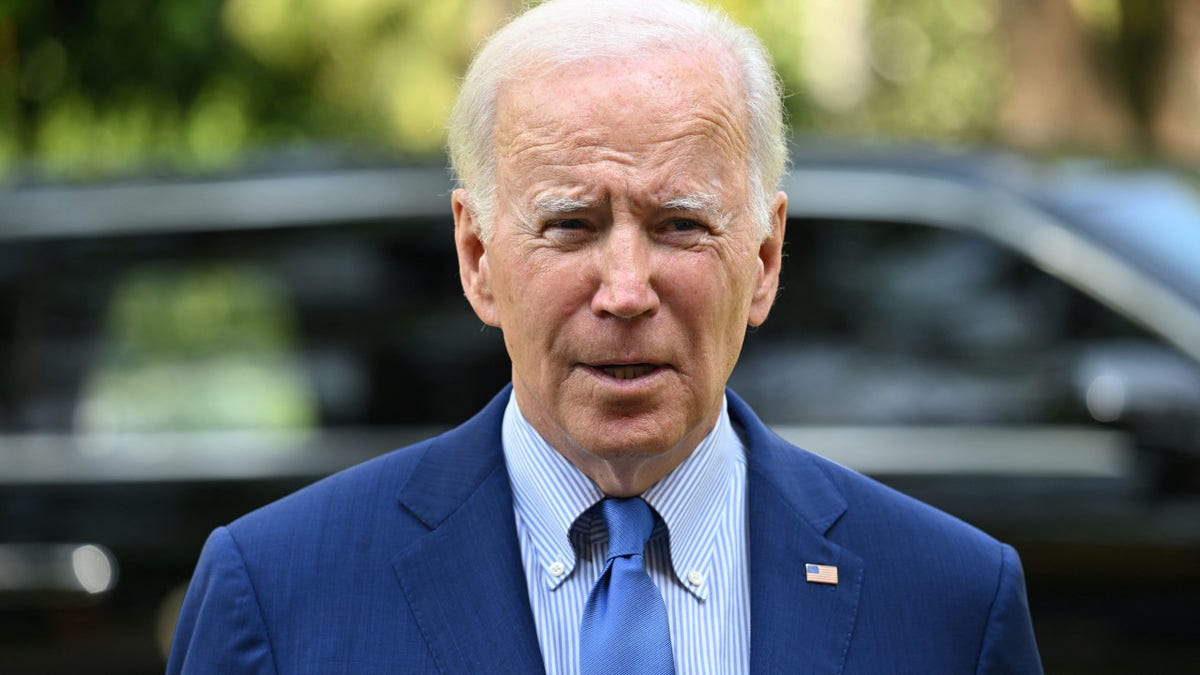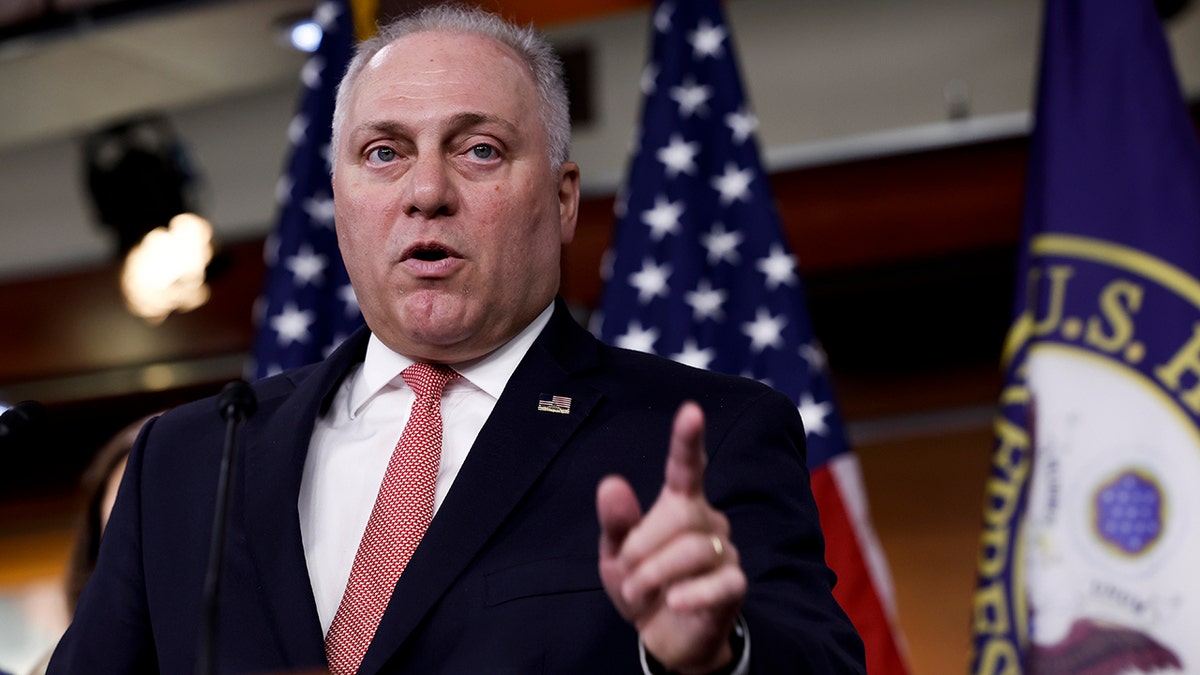US should sell energy to its allies, not force them buy it from its adversaries: Gov. Burgum
North Dakota Gov. Doug Burgum joins 'The Next Revolution with Steve Hilton' to discuss the Democratic Party's war on fossil fuels and its impact on middle class America.
The White House issued a statement of administration policy Monday, stating that President Biden would veto Republicans' sweeping energy package in its current form.
According to the memo, the Biden administration "strongly opposes" the bill — titled the Lower Energy Costs Act — because it would work to counteract the administration's own agenda promoting green energy sources over fossil fuel alternatives. The memo claimed that the GOP legislation proposes to replace pro-consumer policies with a "thinly veiled license to pollute," echoing criticism from top House Democrats.
"It would raise costs for American families by repealing household energy rebates and rolling back historic investments to increase access to cost-lowering clean energy technologies," the White House statement added. "Instead of protecting American consumers, it would pad oil and gas company profits – already at record levels – and undercut our public health and environment."
"H.R. 1 would also empower big companies to skirt the Clean Air Act by lifting pollution control requirements, weaken emissions requirements and worker protection for refineries using toxic chemicals, modify requirements under the bipartisan Toxic Substances Control Act for determining the safety of chemicals used in the energy sector, and repeal $1.5 billion in investments focused on curbing methane leaks that harm surrounding communities."
FOSSIL FUEL, GREEN ENERGY GROUPS TEAM UP IN RARE JOINT EFFORT TO PUSH PERMITTING REFORM

The White House said the president would veto the bill, arguing his administration is already "advancing an unparalleled expansion of American-made energy that will reduce costs." (SAUL LOEB/AFP via Getty Images)
The memo added that the White House believed the Lower Energy Costs Act would double costs for families to purchase home appliances that are more energy efficient than current models. And it blasted the legislation for repealing the Greenhouse Gas Reduction Fund, a $27 billion program created by the Inflation Reduction Act to fund green energy projects nationwide.
On March 14, House Republicans, led by Majority Leader Steve Scalise, R-La., introduced the energy package, arguing it would reverse Biden's "war on American energy," shore up energy and mineral supply chains, reform permitting system and reduce consumer energy prices which have been the main driver of inflation. The House is set to hold a floor vote on the bill this week.
REPUBLICANS UNVEIL EFFORT TO REMOVE BIDEN ADMIN'S BARRIERS BLOCKING OIL AND GAS DRILLING
Among its key provisions, the legislation would eliminate new taxes on natural gas infrastructure, ensure regular oil and gas leasing on federal lands and waters, eliminate permitting hurdles to pipeline development, streamline duplicative regulations related to natural gas production and bolster the ability for mining companies to receive approval for projects.
The legislation has received support from Americans for Prosperity, America First Policy Institute, Heritage Action and two dozen other conservative advocacy groups.

House Majority Leader Steve Scalise, R-La., told Fox News Digital this month the Lower Energy Costs Act was designed to provide relief "for families who are struggling under the weight of President Biden’s radical, anti-American energy agenda." (Anna Moneymaker/Getty Images)
However, Democrats have blasted the legislation for catering to fossil fuel industry priorities with House Natural Resources Committee Ranking Member Raul Grijalva, D-Ariz., dubbing it the "Polluters Over People Act."
CLICK HERE TO GET THE FOX NEWS APP
"The Biden-Harris Administration is advancing an unparalleled expansion of American-made energy that will reduce costs, secure supply chains, and create good-paying jobs," the White House memo Monday stated. "The Administration has made dramatic progress in every area."
"Both oil and natural gas production in the United States are projected to reach record highs this year, the President has authorized the use of the Defense Production Act to strengthen our supply chains, and the Administration is making historic investments to deploy clean energy, accelerate permitting, and create jobs," it continued.
"The Administration wants to work in bipartisan manner with Congress to address lowering energy costs, permitting reform, and addressing energy challenges," the memo concluded. "However, H.R. 1 would take us backward."





















